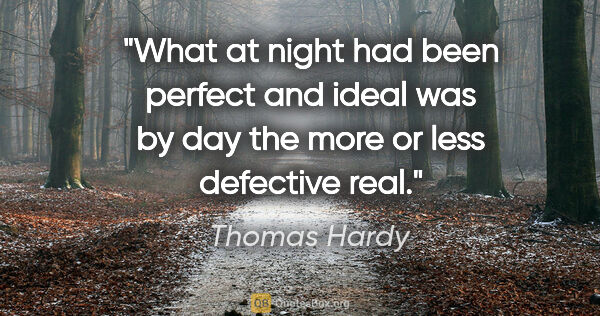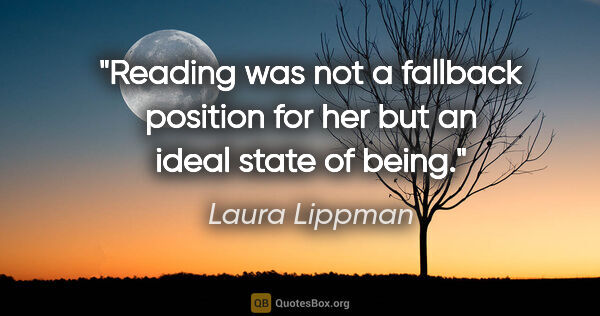Idealism Quotes (page 28)
The various forms of education or ‘normalization’ imposed upon an individual consist in making him or her change points of subjectification, always moving towards a higher, nobler one in closer conformity with the supposed ideal. Then from the point of subjectification issues a subject of enunciation, as a function of a mental reality determined by that point. Then from the subject of enunciation issues a subject of the statement, in other words, a subject bound to statements in conformity...
Gilles Deleuze

She is a woman of honour and smartness whose wild leaves out luck, always taking risks, and there is something in her brow now, that only she can recognize in a mirror. Ideal and idealistic in that shiny dark hair! People fall in love with her. She is a woman I don’t know well enough to hold in my wing, if writers have wings, to harbour for the rest of my life.
Michael Ondaatje

The window gave onto a view of dove-gray roofs and balconies, each one containing the same cracked flowerpot and sleeping feline. It was as if the entire city of Paris had agreed to abide by a single understated taste. Each neighbor was doing his or her own to keep up standards, which was difficult because the French ideal wasn't clearly delineated like the neatness and greenness of American lawns, but more of a picturesque disrepair. It took courage to let things fall apart so beautifully.
Jeffrey Eugenides
In any case, his religious teaching consisted mostly in more or less vague ethical remarks, an obscure mixture of ideals of English gentlemanliness and his favorite notions of personal hygiene. Everybody knew that his class was liable to degenerate into a demonstration of some practical points about rowing, with Buggy sitting on the table and showing us how to pull an oar.
Thomas Merton
There is an ideal of excellence for any particular craft or occupation; similarly there must be an excellent that we can achieve as human beings. That is, we can live our lives as a whole in such a way that they can be judged not just as excellent in this respect or in that occupation, but as excellent, period. Only when we develop our truly human capacities sufficiently to achieve this human excellent will we have lives blessed with happiness.
Aristotle



